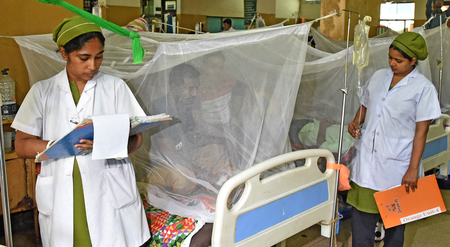
Hyderabad, Feb 27 (IANS) The Genome Valley Excellence Award for 2024 was conferred on Nobel Prize-winning pediatrician Prof Gregg L. Semenza.
The award was presented to him by Telangana Chief Minister A. Revanth Reddy at the 21st edition of BioAsia, the marquee healthcare and life sciences event of the Government of Telangana which began here on Tuesday.
Prof Semenza was selected for the honour in recognition of his prominent ground-breaking discovery in unveiling the hypoxia-inducible factor 1 (HIF-1 protein), a pivotal discovery controlling gene expression in response to fluctuations in oxygen availability.
Prof Semenza is currently the C. Michael Armstrong Professor of Genetic Medicine at Johns Hopkins University School of Medicine, USA. His pioneering work in the field is critical in the treatment of diseases such as cancer, anemia, blinding eye diseases, and cardiovascular disorders.
He thanked the International Advisory Board of BioAsia consisting of personalities of national and international reputation.
“Throughout my career, I have endeavoured to increase our understanding of fundamental biological processes with the hope of translating that knowledge to the clinic in the form of novel therapies for common diseases. It has been gratifying that our basic science discoveries have been able to develop new effective treatments for anemia and kidney cancer,” he said.
He said that the current research in my laboratories focus on development of novel inhibitors of hypoxia inducible factors for two applications; the prevention of vision loss in patients with diabetic eye disease and macular degeneration and also the treatment of a wide range of human cancers.
“In both of these areas we have very encouraging results from animal studies and are hopeful that these drugs will progress to clinical trials in the near future,” he added.
Prof Semenza had discovered how cells can sense and adapt to changing oxygen availability. During the 1990s, he identified molecular machinery that regulates the activity of genes in response to varying levels of oxygen.
The discoveries may lead to new treatments of anemia, cancer, and many other diseases. He received the eminent Nobel Prize in Physiology or Medicine in the year 2019 for the discovery on “how cells sense and adapt to oxygen availability”.
–IANS
ms/dan




